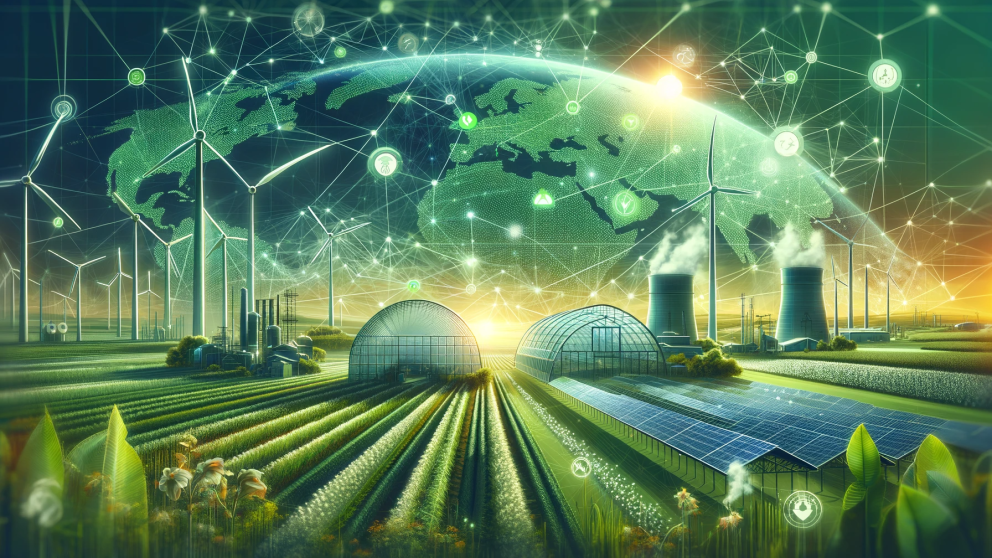The Geopolitics and Decarbonization of Fertilizer Supply Chains
06.12.2023

In the vast arena of global commodities, fertilizers play a silent yet fundamental role. With a market value of $207 billion, they are a cornerstone of modern agriculture, silently underpinning the sustenance of 8 billion people daily. But this essential industry is at a crossroads, grappling with the enormous challenges of decarbonization, volatile geopolitics, and the imperative of food security. The RIFS research project "Geopolitics of the Energy Transformation: Implications of an International Hydrogen Economy" hosted a series of webinars on the "Geopolitics of Fertilizer Supply Chains" about the complexities of the fertilizer industry and the most urgent challenges facing this crucial sector. While the first webinar explored the repercussions of the Russo-Ukraine War on the global fertilizer industry, the second discussed the accelerating decarbonization of the fertilizer industry and its implications for the African continent. This blog post highlights the key takeaways from both instalments:
A Vulnerable Giant
Accounting for 2% of global energy consumption, the fertilizer industry is intrinsically linked to the energy sector. Laura Cross from the International Fertilizer Association highlighted this connection: "Fertilizers are really what meet in the middle between the energy and the food side of commodities”. Geopolitical shocks, such as the war in Ukraine, have exposed the fragility of global supply chains, triggering disruptions and a surge in energy prices, underscoring the need for a more resilient system.
Decarbonization: The Green Ammonia Promise
Synthetic fertilizer production is a heavyweight emitter, with greenhouse gas emissions rivaling those of major European nations, and the call for decarbonization resonates across the sector. On the demand side, reduction and efficient use are essential to mitigate the negative environmental impacts of fertilizer use. Meanwhile, green ammonia has emerged as a beacon of hope for the production side of the industry. Rupert Simons from Systemiq stated, “Green ammonia is overwhelmingly the fastest and typically also the most scalable method of decarbonizing the production of fertilizer.” Nonetheless, significant hurdles remain, such as cost barriers and the need for policy and investment interventions.
Morocco's Leap Towards Green Industrialization
Morocco and its state-owned fertilizer giant OCP are trying to overcome these challenges. As one of the world's largest ammonia importers, Morocco has devised a hydrogen strategy to reduce its dependency on energy imports and decarbonize one of its largest export industries. This case illustrates how securing supply chains can drive green industrialization. According to Prof. Dr. Margarita Balmaceda from Seton Hall University, Morocco's favorable geographical position could well make it a key player in a greener future for fertilizers.
The African Perspective
Morocco’s green industrial strategy will be followed closely across the African continent, which frequently grapples with severe food insecurity and fertilizer shortages despite its vast renewable energy potential. Charlotte Hebebrand from the International Food Policy Research Institute explains that Africa's small market share makes it particularly vulnerable to supply chain shocks. Its reliance on imports adds to this. However, Sebastian Nduva, Lead of AfricaFertilizer.Org observed that countries like Nigeria are increasingly rerouting their exports to intra-African destinations, promising more extensive regional trade and production networks. According to Dr. Kibrom Abay at the International Food Policy Research Institute (IFPRI), “A central aspect to ensure long-term food security and to withstand crisis is the diversification of fertilizer trade, production, and use.” Whether green industrialization is a suitable option for this remains an intriguing question for the future.
Forging a New Path
In conclusion, the challenges and opportunities in the fertilizer industry reflect a broader narrative in the global push for sustainability and resilience in the global economy. The 'Geopolitics of Fertilizer Supply Chains' webinars organized by RIFS researchers has cast light on this critical industry, highlighting the interplay of geopolitics, decarbonization, and food security. The evolving geopolitical implications of this complex domain demand a research agenda that addresses the interlinked factors reshaping the industry. Comprehending the intricacies of the path ahead is essential for efforts to forge a new path that safeguards nature while feeding the future.